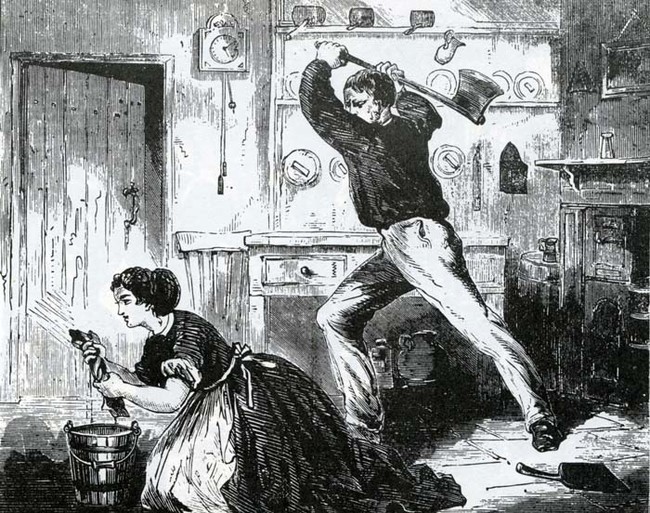10 Facts You Should Know About Female Serial Killers
Nathan Johnson
Published
04/30/2015
in
creepy
The differences between female and male mass murderers are as interesting as they are creepy.
- List View
- Player View
- Grid View
Advertisement
-
1.
 Female serial killers use gender roles to their advantage. In a recent study of female serial killers, it was found that most female killers work in traditionally feminine professions like nursing and teaching. These positions give killers easy access to vulnerable victims.
Female serial killers use gender roles to their advantage. In a recent study of female serial killers, it was found that most female killers work in traditionally feminine professions like nursing and teaching. These positions give killers easy access to vulnerable victims. -
2.
 Women kill for resources. While many male serial murders involve a desire for domination, control, and sexual violence, females are more likely to kill for power or money.
Women kill for resources. While many male serial murders involve a desire for domination, control, and sexual violence, females are more likely to kill for power or money. -
3.
 Male serial killers are more likely to be caught. According to another study, female serial killers are able to avoid capture for at least twice as long as male serial killers.
Male serial killers are more likely to be caught. According to another study, female serial killers are able to avoid capture for at least twice as long as male serial killers. -
4.
 Most female killers know their victims. Most victims of male serial killers are strangers to their killer, while almost every victim of a female serial killer is a known friend, family member, or acquaintance.
Most female killers know their victims. Most victims of male serial killers are strangers to their killer, while almost every victim of a female serial killer is a known friend, family member, or acquaintance. -
5.
 Most women who are in prison for murder are there because they killed a husband, boyfriend, or child.
Most women who are in prison for murder are there because they killed a husband, boyfriend, or child. -
6.
 Poison is the method of choice for female serial killers.
Poison is the method of choice for female serial killers. -
7.
 Male serial killers still vastly outnumber female serial killers. There were only 46 known female serial killers in the United States between 1800 and 2000.
Male serial killers still vastly outnumber female serial killers. There were only 46 known female serial killers in the United States between 1800 and 2000. -
8.
 The average profile of a female serial killer is disturbingly common. She is a young, middle-class woman — usually a married Christian — and she works with vulnerable people in fields like nursing, teaching, and care-giving.
The average profile of a female serial killer is disturbingly common. She is a young, middle-class woman — usually a married Christian — and she works with vulnerable people in fields like nursing, teaching, and care-giving. -
9.
 They are equally as likely to murder other women and children as they are to murder men. In the U.S., at least 51 percent of documented female serial killers have killed another woman. More than 30 percent have murdered a child.
They are equally as likely to murder other women and children as they are to murder men. In the U.S., at least 51 percent of documented female serial killers have killed another woman. More than 30 percent have murdered a child. -
10.
 The average female serial killer murders for much longer than a man. Researchers have found that female serial killers' careers last between 8 and 11 years, versus just 2 years for their male counterparts. This may have something to do with how rarely they're caught compared to male serial killers.
The average female serial killer murders for much longer than a man. Researchers have found that female serial killers' careers last between 8 and 11 years, versus just 2 years for their male counterparts. This may have something to do with how rarely they're caught compared to male serial killers.
Female serial killers use gender roles to their advantage. In a recent study of female serial killers, it was found that most female killers work in traditionally feminine professions like nursing and teaching. These positions give killers easy access to vulnerable victims.
10/10
1/10









62 Comments